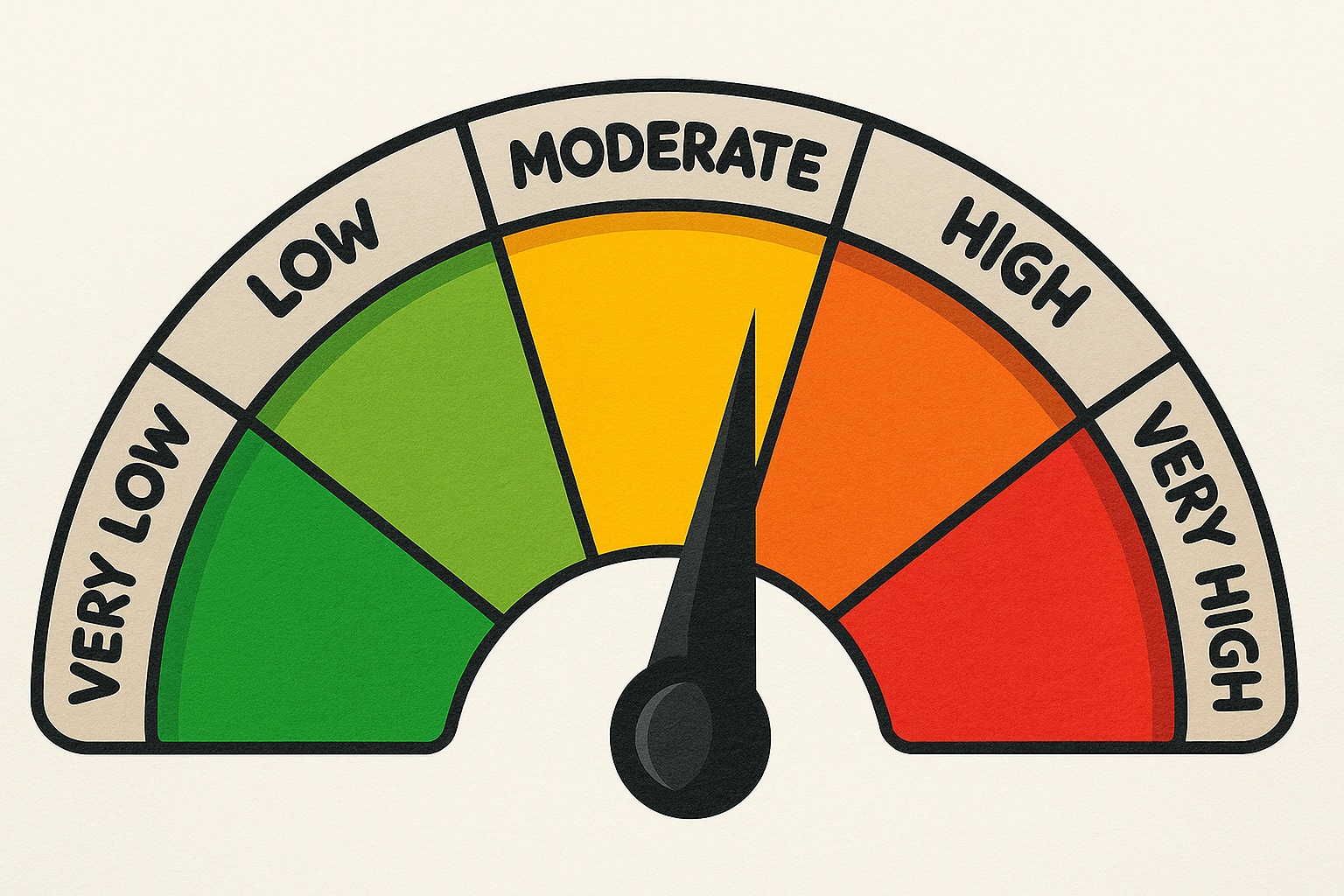
By Tredu.com
• Tredu
Mastering Risk Management in Forex Trading: What Every Trader Must Know
6/10/2025

Let’s be honest, forex trading isn’t easy. It's not just about watching charts, chasing trends, or copying setups from social media. What really separates long-term traders from those who quit is one thing: risk management.
You can have the best entry signals in the world, but if you don’t know how to manage losses, the market will eventually teach you, the hard way.
So, how do you stay in the game? How do you handle the losses, the emotional swings, and the unexpected moves? It all comes down to a few core trading risk strategies that every serious trader needs to understand.
Stop Chasing Wins. Start Controlling Losses.
Here’s a mindset shift: you’re not in this to win every trade. That’s not how real traders think.
Your job is to protect your capital first. Winning will follow; but only if you can survive the down days.
One of the simplest, most effective ways to do that? Decide in advance how much you’re willing to lose on a single trade. Many experienced traders stick to risking no more than 1–2% of their total account balance per trade.
Why? Because one bad trade won’t ruin them. They can come back the next day, clear-minded and ready to go again.
Always Use a Stop Loss — No Exceptions
Think of a stop loss like a fire exit — you hope you won’t need it, but when things go south, it saves you from disaster.
Yet, a surprising number of new traders skip it. “I’ll just watch the chart,” they say. Or worse, “I’ll close it manually if it goes against me.”
Don’t do that. You’re not faster than the market, and you can’t think clearly under pressure.
Set your stop. Accept the potential loss. And move on if it hits. That’s professional forex risk management — it’s not emotional, it’s planned.
Not Every Trade Is Worth Taking
One of the most overlooked trading risk strategies? Selectivity.
Too many traders open five positions in a day, hoping one will “work out.” But every trade carries risk. If you're taking low-quality trades just to stay busy, you're exposing yourself to unnecessary losses.
Focus on trades where the potential reward clearly outweighs the risk. A 1:2 risk-reward ratio is a good starting point — you risk $1 to potentially make $2. If that setup isn’t there, skip it.
You don’t need more trades. You need better ones.
Don’t Let Leverage Destroy You
Leverage is tempting. It’s also dangerous.
Using 1:500 leverage on a $100 account might feel exciting, but it’s a quick road to blowing up your balance. A single move of 20 pips can wipe you out.
Trade with smaller positions, especially while you're learning. The goal isn’t to turn $100 into $10,000 in a week. The goal is to still have an account in six months.
Smart forex risk management means treating leverage with respect — not as a shortcut to success.
Losses Happen. Handle Them Like a Pro.
If you trade long enough, you will lose money. That’s not failure — it’s part of the job.
The mistake isn’t in losing. It’s in how you react. Most traders dig a deeper hole trying to “win it back.”
That’s emotional trading. And it’s deadly.
Real pros review their losing trades. They ask: Did I follow my plan? Was the risk justified? What could I do better next time?
That kind of thinking leads to growth. It’s how you build a mindset capable of managing forex losses without fear or panic.
Track Everything. Yes, Everything.
One habit separates consistent traders from the rest: journaling.
You don’t need a fancy app. Just open a spreadsheet or notebook. For every trade, write down:
- Why you took it
- Entry and exit points
- Stop loss and take profit
- How you felt before, during, and after
Over time, your patterns will appear. You’ll see what’s working — and what’s costing you money.
Risk management isn’t just numbers. It’s self-awareness. Journaling gives you that edge.
Final Thoughts: Risk Less, Trade Longer
If there’s one takeaway from all this, it’s simple: the best traders aren’t just good at winning — they’re great at not losing big.
Risk is part of the game. But it shouldn’t be left to chance.
Have a plan before every trade. Stick to it. And understand that staying in the game is more important than any single “perfect” setup.
At Tredu.com, we’re here to help you become a smarter, more disciplined trader — not just someone who chases green candles. Explore our trading courses, market updates, and risk tutorials designed for traders who want to grow consistently, not just quickly.
Keep Learning with Related Posts
Trading education is a journey, and there’s always more to explore.
If you enjoyed this article, you might also like:
Other Recent Posts

2026 Market Outlook Highlights: what to look at in 2026
By Tredu.com · 1/26/2026

Why Quality Trading Education Matters: How Verified Trading Educators Boost Your Financial Knowledge
By Tredu.com · 7/14/2025

From Beginner to Pro: Learn How to Trade with the Right Trading Educators by Your Side
By Tredu.com · 7/2/2025
